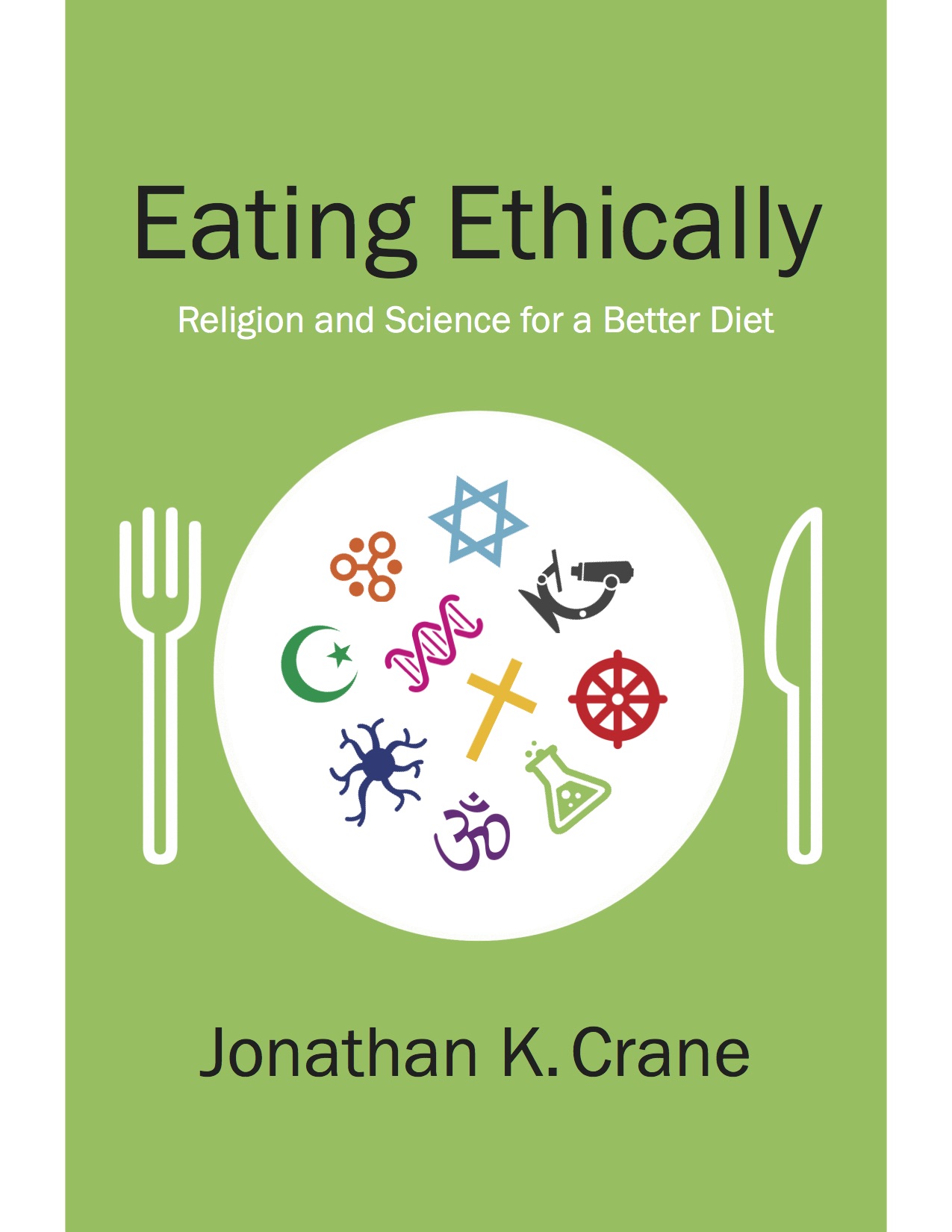‘Eating Ethically’ Can Make A Difference at Thanksgiving
In his book “Eating Ethically: Religion and Science for a Better Diet,” published about a year ago, Jonathan Crane argues that Americans need a new eating strategy.
If you plan to do your grocery shopping for Thanksgiving Nov. 27, the day before the holiday, be prepared for a longer than usual checkout time. According to the latest reports by the National Grocers Association, more food will be bought next Wednesday than on any other day of the year.
It is a statistic that Jonathan Crane, a professor at Emory University, would like to see modified.
In his book “Eating Ethically: Religion and Science for a Better Diet,” published about a year ago, Crane argues that Americans need a new eating strategy. It should be grounded in ethics, responsible to our biology, and ultimately do-able on a day-to-day basis. Without that, he contends, we’re not going to harm our health and well-being, but we’ll be damaging the environment.

“We are taught to eat according to what our tongues want and for momentary pleasure,” he says. “The environmental toll of such hedonism is incontrovertible. It’s not only destroying our current environment, but also is compromising the integrity of the world.”
Just for the one day of Thanksgiving, the NGA estimates we’ll buy around 46 million turkeys, 80 million pounds of cranberries, 214 million pounds of potatoes and 50 million pounds of sweet potatoes. Want pie? We’ll buy about 19 million of them. Which adds up, according to the national Calorie Control Council to an average of about 4,500 calories on Thanksgiving this year, well over twice what men should normally eat, three times the calories women should have daily.
Crane, who teaches ethics at Emory and is an ordained Reform rabbi, points out that such gluttony, when extended beyond a single day, is unsustainable.
“That many of us choose not to change our diets to a more sustainable one is a form of delusion and denial,” he maintains. “I think that is damning.”
Crane occupies the prestigious Raymond F. Schinazi chair in Bioethics and Jewish Thought.
Examining the process and morality of eating first developed after he wrote an op-ed piece for The New York Times six years ago on “The Talmud and Other Diet Books.”
At that time, he was interested in how Judaism, with its dietary laws and cautions about how and when to eat, could be a source of wisdom that everyone, regardless of their faith tradition, could benefit from.
He created several courses three years ago at Emory about ethical eating. They were aimed at understanding the complexity and the culture around how we eat. In one of the courses he brought a dozen guest lecturers into the classroom from subjects as diverse as anthropology, law and public health. Applying for the 20 seats in the classroom were 150 students.
Because of how we eat, more than 160 million Americans are either overweight or obese, the highest proportion of fat citizens of any country in the world, according to an international study done five years ago by the British Medical Journal, The Lancet.
According to the same study, 30 percent of our children are either obese or overweight. Health issues proliferate with weight gain. Obesity can contribute to increased risk for heart disease, diabetes and stroke, according to numerous medical studies.
“There is no good reason for people who have the means and access to a more sustainable diet not to make those shifts,” Crane said.
He, himself, is slender, almost gaunt in appearance, and has influenced his wife and three young sons to follow a mostly vegetarian, plant-based diet. However, he is careful not to prescribe any radical revolution in eating habits. There’s no paleo prescription in his book or gluten-free pantry. The changes he mentions are as much behavioral as they are dietary. They are very simple to follow.
Before you eat, take a minute or two to appreciate what you have on the plate before you, the colors of the foods, their aromas and textures. Eat more slowly, savor the flavors, and how they taste on the palate. Don’t rush. Stop before you feel full. Be mindful of what is going on in your body and what is happening around you. Enjoy the company of others at the table.
“Turn off screens. Don’t try to be entertained while you eat,” he advised. “Have people around you and interact with them. The kitchen table is precisely where our identity is built. It is where we learn to moderate ourselves.”




comments